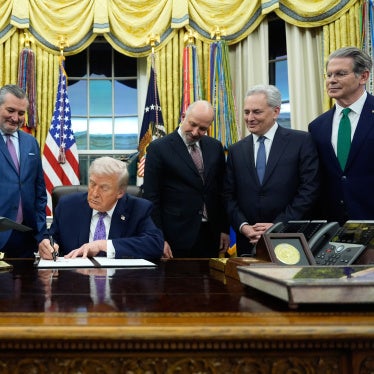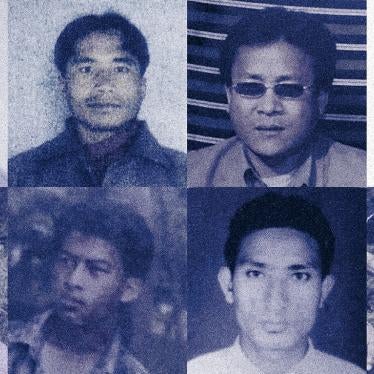We, the undersigned organisations, call upon the 41 Governments that compose the Wassenaar Arrangement on Export Controls for Conventional Arms and Dual-Use Goods and Technologies, to take action and address the alarming proliferation of surveillance technologies available to repressive countries involved in committing systematic human rights violations. This trade results in unlawful surveillance, which often leads to further human rights violations including invasions of privacy, arbitrary arrest and detention, torture and other cruel, inhuman or degrading treatment or punishment, the silencing of free expression, preventing political participation, and crushing offline and online dissent.
Surveillance technologies are not simply harmless tools. In the wrong hands they are often used as a tool of repression. Evidence is continuing to reveal the extent of this secretive trade that puts countless individuals at direct risk from human rights abusing governments. More and more stories emerge showing these damaging and often unlawful technologies affecting political activists, human rights defenders, refugees, dissidents and journalists, with some technologies placing entire populations under surveillance. Governments with internationally condemned human rights records such as Bahrain, Ethiopia, Egypt, Turkmenistan, Libya, Syria and Iran have all purchased surveillance technologies from private companies, and have used them to facilitate a variety of human rights violations. Some revelations in France, Germany, the UK, and the US have led to police and judicial investigations following calls from NGOs and members of the Coalition Against Unlawful Surveillance Exports. Remarkably and despite mounting evidence of associated abuses, surveillance technology companies still openly market their products at 'trade fairs' across the UK, France, US, Brazil and the UAE among other countries.
Although steps were taken in 2013 to address this largely unregulated global market, governments cannot let the momentum halt. Governments have now included additional technologies associated with intrusion software and IP monitoring to the Lists of Dual Use Goods and Technologies and Munitions, and are aware of the impact surveillance technologies can have on human rights. There is now a pressing need to modernise out of date export controls. In addition, technologies such as undersea fibre-optic cable taps, monitoring centres, and mass voice / speaker recognition technologies urgently need to be examined for their impact on human rights and internal repression, particularly when the end user is a government known for committing human rights violations. Technologies evolve at a rapid pace and governments that abuse human rights take advantage of weak regulation, the product of poor understanding of the technologies and their capabilities.
In the current system, human rights and digital rights groups, as well as external independent experts, are excluded from contributing their expertise and knowledge to the Wassenaar Arrangement forum. The additional expertise and knowledge that civil society can bring to the debate is invaluable to this end. Discussions should not continue in a closed-forum manner and we urge governments to engage with civil society organisations to help ensure that accurate and effective controls are developed which reflect modern technological developments and do not impede legitimate scientific and security research.
Any export policy relating to surveillance technologies should place human rights at its heart. Governments must exercise a strict policy of restraint and should refuse to grant export licenses for surveillance technology destined for end-users in countries where they are likely to be used in an unlawful manner i.e. not compliant with human rights legal standards. Governments should consider the weakness or absence of an appropriate legal framework in the recipient country to ensure the transfer would not pose a substantial risk of the items being used to violate or abuse human rights. Governments should also be transparent in what they export, and to whom and support the development of an international legal framework to address the sale and trade of surveillance technologies.
· Amnesty International
· Digitale Gesellschaft
· FIDH (International Federation for Human Rights)
· Human Rights Watch
· Open Technology Institute (at New America)
· Privacy International
· Reporters sans frontieres








